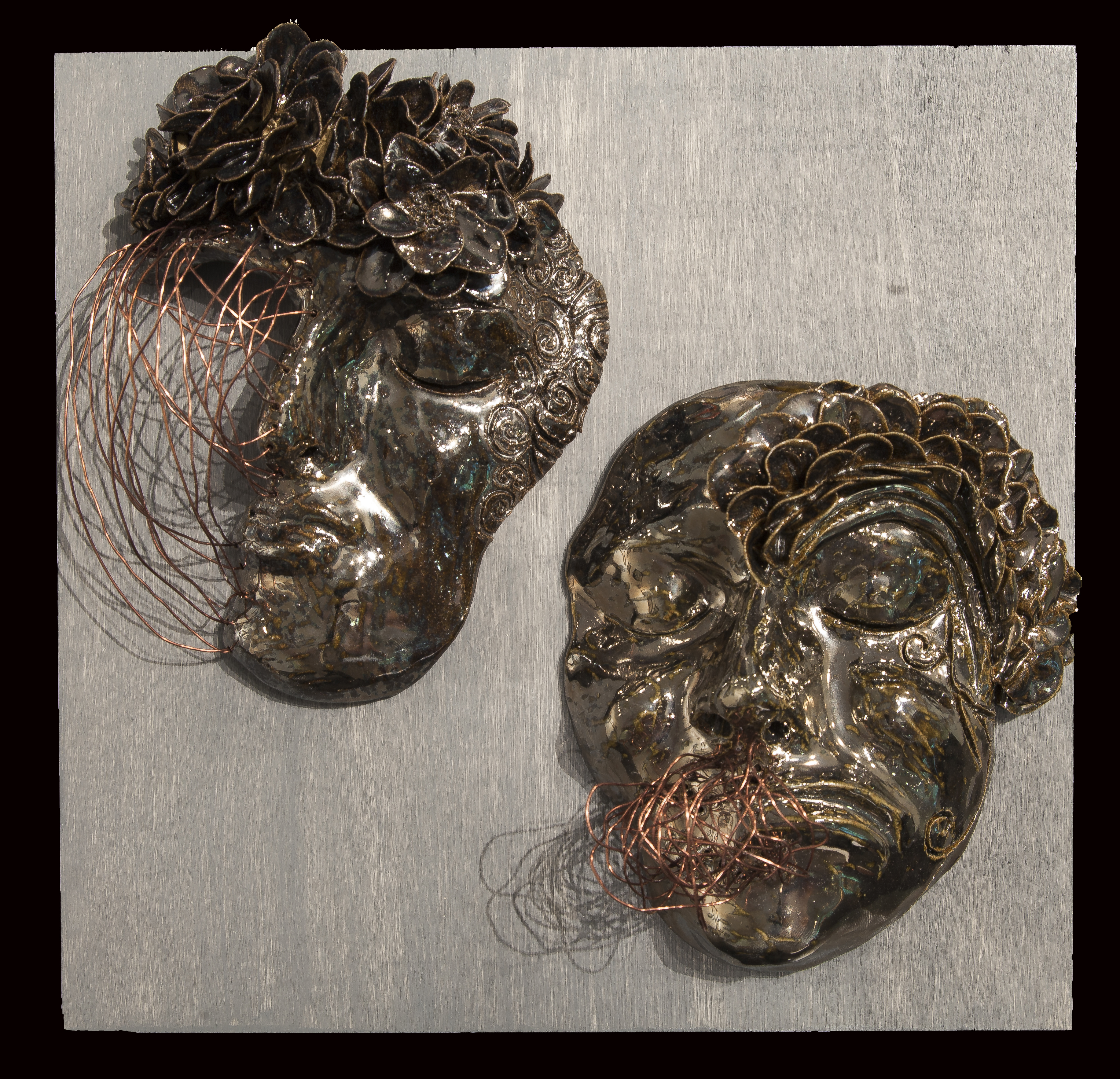The Progress of Women in Literature [cont…]
by: Samantha Ceballos
A rule of etiquette for women of the 1800s that has drastically changed reads “Be careful always to speak in a distinct, clear voice; at the same time avoid talking too loudly, there is a happy medium between mumbling and screaming. Strive to attain it” (Hartley 14). Cisneros’ persona embraces the opposite of the given rule presenting the reader with a loud and proud woman. A female should not have to hide herself to please others. Problems faced by women hold just as much importance as the problems of children and men. Speaking of those problems breaks down a barrier that allows for people to cope and get past the “taboo” of women’s issues. The world dictating how we can express ourselves, in a way, tells females our opinions do not matter. Proper etiquette, in Dickinson’s time, meant striving to obtain an appropriate voice, but a new voice has emerged under the persona presented in Cisneros’ poem.
Throughout the piece, a strong female voice claims she makes popes and fathers cry. The patriarchy holds no importance in this poem, she terrifies them. The narrator knows that she has built a bad reputation for herself, but she accepts it as a part of her and what she stands for, showing no regret over what she has created. Out of rebellion, the Chicana/feminist character embraces the title “Loose Woman.”
Cisneros makes mention of a notorious Mexican figure, feminizing the name to “Pancha Villa” (line 36). Francisco Madero, a Mexican reformist, inspired the creation of Pancho Villa, a bandit deemed “Robin Hood,” and together they helped the rise of the rebellion against Mexican dictator Porfirio Diaz (Columbia Electronic Encyclopedia). Personifying woman as a fighter, the narrator goes against the people attempting to oppress women signifying revolution waits on the horizon. By breaking the “natural order” (Line 38) she becomes “La Desperada” (Line 41), a desperate criminal, because she breaks the norms set by society that women previously followed. A transformation occurs from the captive hold of a master in Dickinson’s poem, to a law breaking desperado turned “Robin Hood” in Cisneros’ work
Comparison
Both poems have hints of anger such as the mention of “A loaded gun,” ( Dickinson Line 1) “Vesuvian face” (Dickinson line 11), “I break things” (Cisneros Line 62), and “toads and serpents” (Cisneros Line 19). Each of these expressions carries anger towards a specific person or event. A loaded gun presents danger and harm to others. Hanging around a person with a Vesuvian face seems a little dangerous when one considers Mount Vesuvius wiped out the city of Pompeii. “Break[ing] thing[s]” in general, especially on purpose, can symbolize acts of rage or revenge. Having toads and serpents flow out of one’s mouth may imply foul language or hurtful words. The anger depicts frustrations felt by women in this world. It has a rightful place and should become a topic of exploration. These two women have accomplished this with these poems. They have established the setting and given us a look into the evolution of a movement still in progress.
Both poems show the protection of what each speaker loves. The gun protects her master’s head in Dickinson’s work, and the narrator protects her thoughts and reputation in Cisneros’ work. A gun can never die and certain political figures, like Pancho Villa, never really fade implying that these two women will not vanish thus joining the ranks of immortality
The connection
When compared with each other, Dickinson gives the perspective of a pre-feminist feeling of ‘I have power but the men still come first,’ while Cisneros brings a whole new perspective on women and how male judgment of her behavior does not matter and will not alter her self-value.
In a study done by the University of Texas Pan America between 1974 and 2004 people of European and Mexican descent answered questions that dealt with gender roles. The survey highlighted the fact that, “Mexican Americans of the third or later generation in the sample show more liberal or egalitarian gender-role attitudes than those of the first or second generation” (774). It also gives proof that European generations assimilated faster than Mexican generations. The differences of cultural ideals taught to growing generations may have an effect. This research helps give perspective to how the two cultures assimilate and at what rate.
Having been here a long time, women of European descent might have better accepted Dickinson’s work because of a willingness to discuss the idea of equality instead of facing those who opposed the equal treatment of women. There existed those, like Florence Hartley, who wanted to keep women prim and proper, but ultimately her handbook for Ladies Etiquette disappeared as new “etiquette” began to circulate.
The placement of old principles upon women creates difficult times for women in society. When women break through these principles we see progress. For some cultures it takes longer because of their beliefs. Cisneros believes in the power of women of color and as she stated in her interview, a lot must still happen for women of color to reach equality. Mexican culture centers on men. The patriarchy controls the language, as seen by the assignment of gender to nouns. But after enough time a change will occur and women will become stronger. Cisneros does not forget her origins in her poem. She references certain cultural elements that remind us from whence she came and that show her pride in living as a woman of color.
Conclusion
These two women lived in different times, went through different circumstances but the issue that ties them together falls on the need for women’s equality and the importance of being considered equals to their male counterparts. Emily Dickinson embraced the beginning of a new stream of consciousness that led to a revolution for women’s rights. Her mind became one of many who knew the value they held, but this movement had not yet fully blossomed. Sandra Cisneros acts as the continuous push for the rights of women, men, people of low income, and those from different cultures. Women writers today fight for equality while embracing change and breaking down barriers to continue the evolution patriarchy still threatens to destroy.
Work Cited
Anzalduá, Gloria. Borderlands: The New Mestiza = La Frontera. 4th ed. San Francisco,
CA:Aunt Lute, 2012. Print.
Baym, Nina, and Robert S. Levine. “Emily Dickinson 1830-1886.” The Norton Anthology of American Literature. 8th ed. New York: W.W. Norton, 2012. 1659+. Print.
Cisneros, Sandra. “A House of My Own.” Introduction. The House on Mango Street. New York: Vintage, 1991. XI-XXVII. Print.
Cisneros, Sandra. “Cisneros Interview.” E-mail interview. 21 Mar. 2016.
Cisneros, Sandra. “Loose Woman.” Loose Woman: Poems. New York: Vintage, 1995. 112-15. Print.
“Francisco Villa.” Columbia Electronic Encyclopedia, 6Th Edition (2015): 1. Academic Search Complete. Web. 2 May 2016.
Hernández-Gutiérrez, Manuel De Jesús., and David William. Foster. Literatura Chicana, 1965-1995: An Anthology in Spanish, English, and Caló. New York: Garland Pub., 1997. Print.
Rebolledo, Tey Diana, and Eliana S. Rivero. Infinite Divisions: An Anthology of Chicana Literature. Tucson: U of Arizona, 1993. Print.
“The Manuscripts | Emily Dickinson Museum.” The Manuscripts. Trustees of Amherst College, 2009. Web. 02 May 2016.
Warhol, Robyn R., and Diane Price Herndl. “Discourses of Gender, Ethnicity and Class in Chicano Literature.” Feminisms: An Anthology of Literary Theory and Criticism. New Brunswick, NJ: Rutgers UP, 1997. 1009-022. Print.
—. “La Conciencia De La Mestiza.” Feminisms: An Anthology of Literary Theory and Criticism. New Brunswick, NJ: Rutgers UP, 1997. 765-75. Print.
—. “The “Wild Zone” Thesis As Gloss In Chicana Literary Study.” Feminisms: An Anthology of Literary Theory and Criticism. New Brunswick, NJ: Rutgers UP, 1997. 248-56. Print.
Wollstonecraft, Mary, and Candace Ward. A Vindication of the Rights of Woman. Mineola, NY: Dover Publications, 1996. Print.


